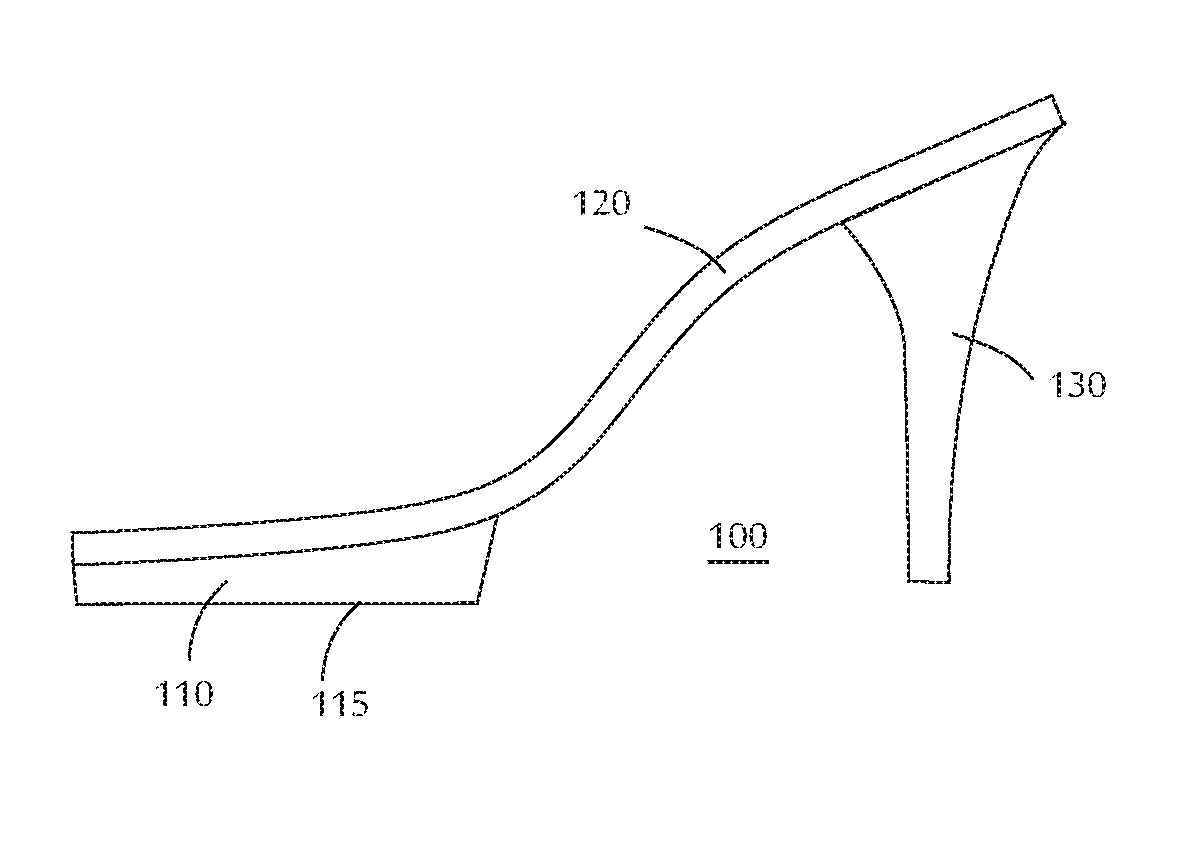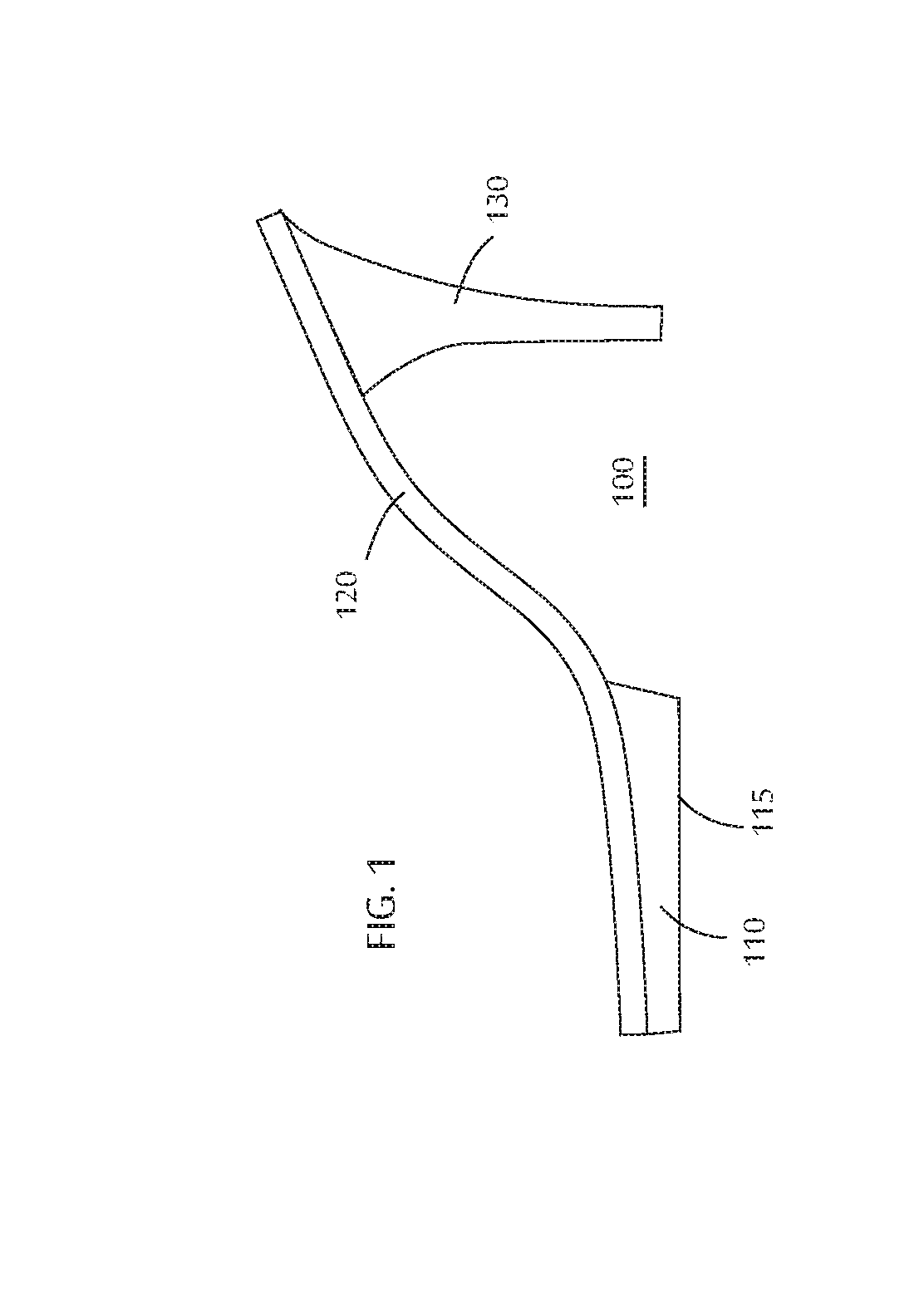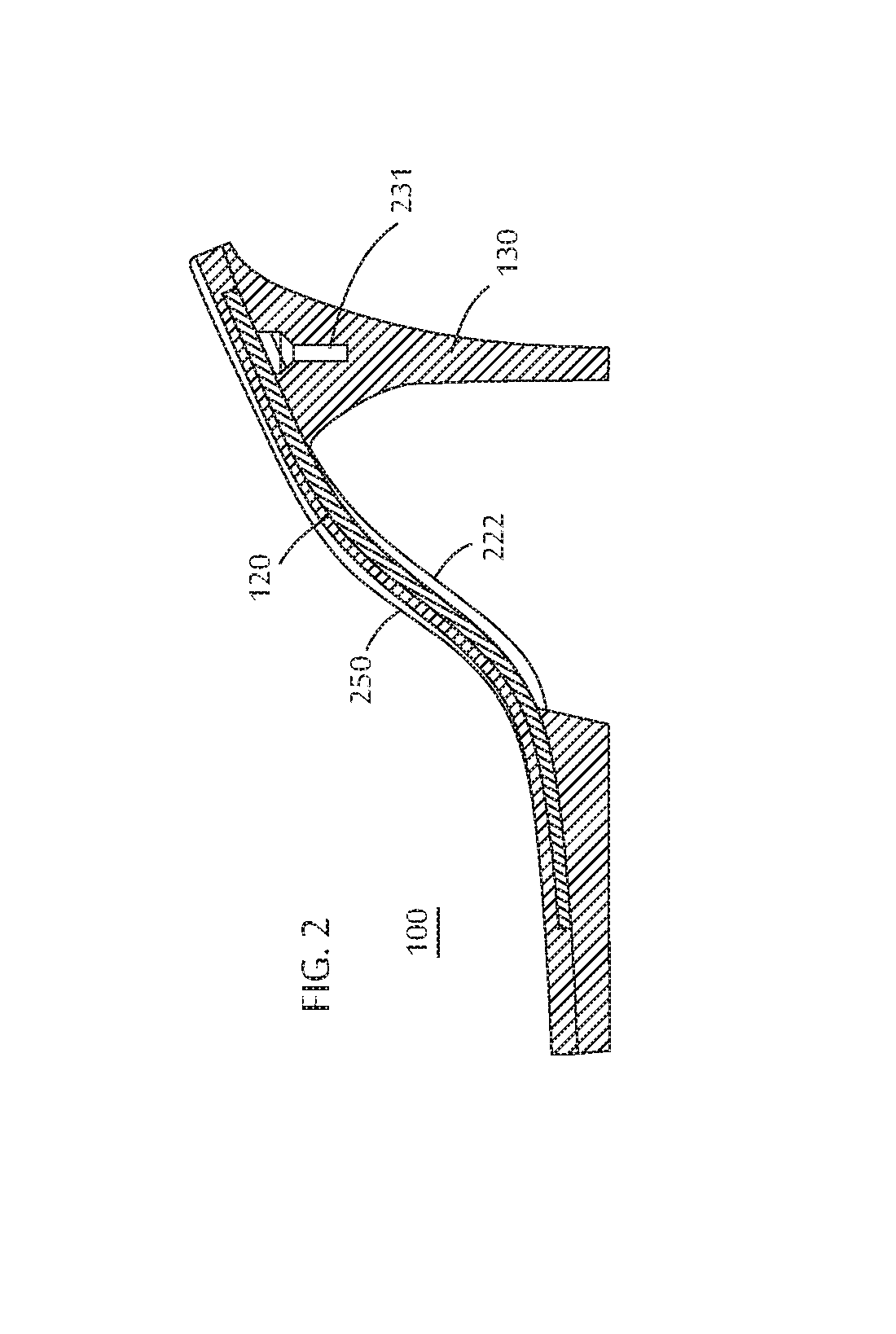High heel shoe
a technology of high heel shoes and heel bones, which is applied in the direction of fastenings, uppers, bootlegs, etc., can solve the problems of increased pressure on the ball of the foot rather than the heel bone, pain in the wearer's foot, and inability to adjust the heel
- Summary
- Abstract
- Description
- Claims
- Application Information
AI Technical Summary
Benefits of technology
Problems solved by technology
Method used
Image
Examples
Embodiment Construction
[0019]The functional components of the shoes described herein have a variety of specifications. These specifications include dimensions, shapes, thicknesses, strength, rigidity and flexibility, including variations of these throughout the component. The specifications of many of the components are related such that changes to one component suggest or require a change to other components. These specifications are selected based upon the intended wearer or range of wearers, such as ranges of weight and shoe size. Furthermore, intended use of the shoe, including useful life, may guide performance and tolerance requirements, which then impact specifications of the components. In the following description, a number of relative terms are used with respect to various shoe components. In practice, these relative terms serve as guides to how to achieve specific dimensions for a desired shoe.
[0020]Referring now to FIG. 1, the main structural components of a high heel shoe 100 include a toe be...
PUM
 Login to View More
Login to View More Abstract
Description
Claims
Application Information
 Login to View More
Login to View More - R&D
- Intellectual Property
- Life Sciences
- Materials
- Tech Scout
- Unparalleled Data Quality
- Higher Quality Content
- 60% Fewer Hallucinations
Browse by: Latest US Patents, China's latest patents, Technical Efficacy Thesaurus, Application Domain, Technology Topic, Popular Technical Reports.
© 2025 PatSnap. All rights reserved.Legal|Privacy policy|Modern Slavery Act Transparency Statement|Sitemap|About US| Contact US: help@patsnap.com



